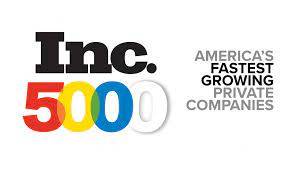Both Shopify and BigCommerce are powerful SaaS eCommerce platforms that enable you to launch online stores quickly and without requiring advanced web development skills. SaaS or “Software as a Service” platforms have a huge advantage over regular websites: online sellers are not required to maintain their content themselves – the SaaS platform will host their website for them, in exchange for a monthly fee. If you are an online merchant looking for a new home for your online business, it’s a good idea to go read up on our Shopify VS BigCommerce comparison.
Shopify VS BigCommerce Overview
Both Shopify and BigCommerce offer the best in terms of support, including server maintenance, running upgrades and solving tech issues effectively, so that leaves the question: Shopify or BigCommerce? What sets them apart?
Shopify
Shopify is one of the most popular SaaS e-commerce platforms on the market today, with over 1.75 million stores running it worldwide. Shopify allows you to build custom online stores according to your niche, sell products, manage orders and inventory and of course, accept payments. It’s also one of the quickest and easiest ways to start an online store due to the fact that it’s very user friendly and offers plenty of tools and integration options. Just like all SaaS ecommerce platforms, Shopify runs on a monthly subscription basis.
Shopify Key Features
- Mobile responsive themes
- App store with over 6000 products
- International payment methods
- CMS Blog capabilities
- Easy to use drag-and-drop store builder
- 0% Transaction Fees
- Fully-featured mobile app
- E-mail campaigns with Shopify Email
BigCommerce
BigCommerce allows online merchants to create and customize their online store, manage payments, shipping, products and orders. BigCommerce is one of Shopify’s biggest competitors, both in terms of reliability as well as user friendliness. BigCommerce offers plenty of ready-to-use templates suitable for a variety of online stores and websites. As with Shopify, BigCommerce uses a monthly subscription plan, with three different core plans and an Enterprise solution for larger stores.
BigCommerce Key Features
- Mobile responsive themes
- App store with over 1000 products
- International payment methods
- CMS Blog capabilities
- Easy to use drag-and-drop store builder
- 0% Transaction Fees
Shopify VS BigCommerce Cost
One of the most important factors you should consider when using an ecommerce website builder is the recurring monthly cost of a plan. Additional costs such as transaction fees and credit card fees should also be taken into consideration when choosing a platform. Let’s take a closer look at the average Shopify VS BigCommerce cost.
Both Shopify and Bigcommerce offer three different pricing plans, according to your needs. Shopify’s plans range from $29 a month for the basic plan to $299 a month for the advanced one, while BigCommerce’s plans range from $29.95 a month for the basic plan to $299.95 a month. Shopify also offers a $9 a month Lite version, but it doesn’t offer the functionality of a full-fledged online store.
It’s also important to note that both of these platforms offer discounts up to 10% if you pay annually instead of monthly. Now let’s take a look at the Shopify VS BigCommerce cost of transactions and associated credit card fees.
Transaction Fees
Transaction fees represent a percentage of revenue that you pay to the e-commerce platform from each sale you make. BigCommerce has zero transaction fees on any of its plans, while Shopify charges between 0.5% and 2%, depending on the monthly plan you are under. If you want to avoid Shopify’s transaction fees, you can use Shopify Payments, instead of a third party payment processor such as PayPal.
Credit Card Fees
Credit card fees represent a percentage of revenue that you pay to a third party payment processor, whenever you make a sale. There are plenty of payment processors to choose from, with Shopify offering over 100 integrations and BigCommerce over 65.
Some payment processors recommended by BigCommerce or Shopify come with special rates. Shopify recommends the Shopify Payments option, while BigCommerce recommends PayPal. Both payment processors charge fees of 2.9% + 30 cents per transaction, but Shopify’s standard and advanced plans have reduced fees of 2.6% + 30 cents and 2.4% + 30 cents, respectively.
Shopify VS BigCommerce SEO
Shopify VS BigCommerce SEO features are plenty on both platforms. Shopify allows users to add and modify meta titles and descrpitons, generate sitemap.xml and robots.txt files, add keywords, and prevent duplicate content with canonical redirects. BigCommerce also offers these search engine optimization features on all of their plans. The only difference is that with Shopify, for more advanced SEO features such as adding schema markups, you will have to install a third-party app such as Shopify Reviews or Yotpo. That being said, adding too many additional apps or plugins can slow your website down and increase its total loading time.
Shopify Web Development Company
While using a website builder to build your online store is generally the fastest solution, it doesn’t mean that it’s easy. Ecommerce is highly competitive, especially in 2021, so if you want to run a successful online business you need to stand out. This includes graphics, page elements placement, development tweaks, content and more importantly, search engine optimization.
It’s always good to have Shopify web development company by your side to tackle all the hick-ups that appear along the road from concept to successful online store. JLB USA is a BigCommerce & Shopify web development company with over 10 years of experience as a complete solution agency. Contact us using the form below.










